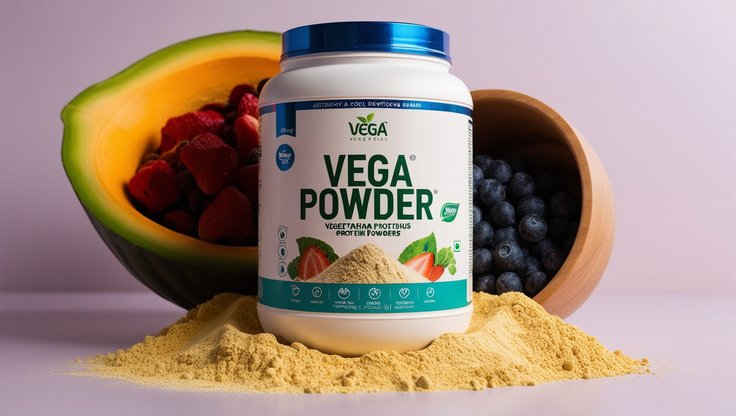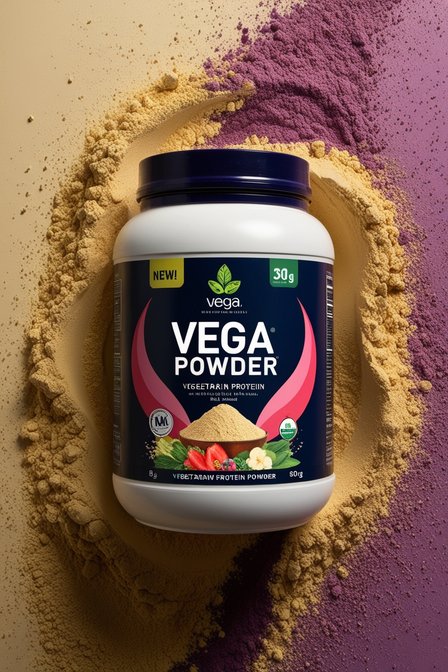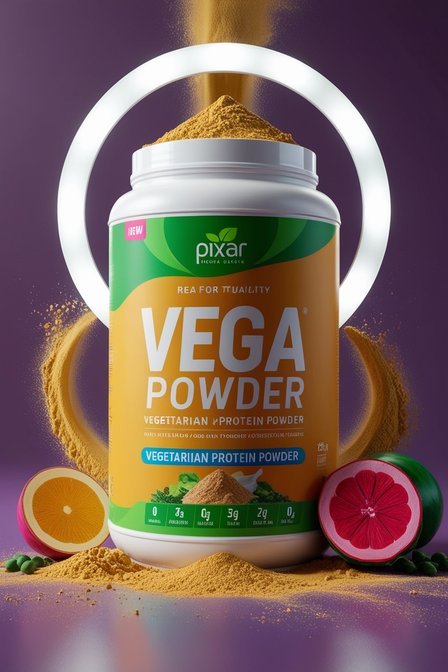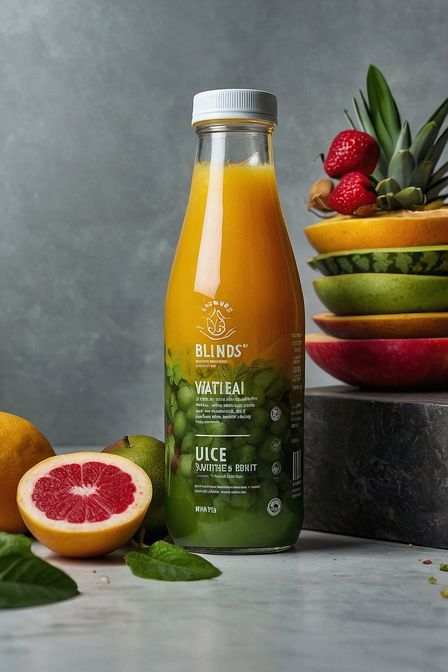The Rise of Vegan Protein Powder: A Comprehensive Guide
The shift towards plant-based diets has been significant in recent years, with more people seeking alternatives to animal-based products. One of the areas where this shift is most evident is in the protein supplement industry. Vegan protein powders have emerged as a popular choice for those looking to maintain or build muscle, improve their health, and support sustainable practices. This comprehensive guide explores everything you need to know about vegan protein powders, from their benefits and types to how to choose the best one for your needs.
Understanding Vegan Protein Powder
Vegan protein powder is a dietary supplement made from various plant sources. Unlike traditional protein powders derived from animal products like whey or casein, vegan protein powders are made using plant-based ingredients such as peas, rice, hemp, soy, and other legumes and seeds. These powders provide a convenient and effective way to boost protein intake, especially for those following vegan or vegetarian diets.
Benefits of Vegan Protein Powder
There are numerous benefits associated with vegan protein powders. One of the primary advantages is that they are free from animal products, making them suitable for vegans and those with lactose intolerance. Vegan protein powders are also generally hypoallergenic, meaning they are less likely to cause allergic reactions compared to dairy-based proteins.
Another significant benefit is that plant-based protein powders are often easier to digest. Many people find that they experience less bloating and gastrointestinal discomfort when using vegan protein powders as opposed to whey protein. This improved digestibility is partly due to the fiber content in plant-based proteins, which supports healthy digestion.
Vegan protein powders are also packed with essential nutrients. In addition to protein, they often contain vitamins, minerals, antioxidants, and phytonutrients, which contribute to overall health. For example, hemp protein powder is rich in omega-3 and omega-6 fatty acids, while pea protein is a good source of iron.
Types of Vegan Protein Powder
There are several types of vegan protein powders available, each with its own unique properties and benefits. Understanding the different types can help you choose the best one for your needs.
Pea Protein: Pea protein is one of the most popular vegan protein powders. It is made from yellow split peas and is known for its high protein content and excellent amino acid profile. Pea protein is also hypoallergenic and easily digestible, making it a great option for those with food sensitivities.
Rice Protein: Rice protein is another common vegan protein powder, derived from brown rice. It is a good source of protein but is often lower in lysine, an essential amino acid. However, when combined with other plant-based proteins, such as pea protein, it can provide a complete amino acid profile.
Hemp Protein: Hemp protein is made from the seeds of the hemp plant and is highly nutritious. It contains all nine essential amino acids and is rich in fiber, omega-3 and omega-6 fatty acids, and various vitamins and minerals. Hemp protein is also known for its earthy taste and slightly coarse texture.
Soy Protein: Soy protein is derived from soybeans and is one of the few plant-based proteins that provide a complete amino acid profile. It is also rich in antioxidants and phytonutrients. However, soy protein can be a common allergen, so it may not be suitable for everyone.
Pumpkin Seed Protein: Pumpkin seed protein is a lesser-known but highly nutritious option. It is rich in protein, healthy fats, and various vitamins and minerals. Pumpkin seed protein also has a smooth texture and a mild, nutty flavor.
How to Choose the Best Vegan Protein Powder
Choosing the best vegan protein powder involves considering several factors, including protein content, amino acid profile, digestibility, taste, and additional nutritional benefits. Here are some tips to help you make an informed decision.
Protein Content: Look for a protein powder that provides at least 20 grams of protein per serving. This amount is generally sufficient to support muscle maintenance and growth.
Amino Acid Profile: Ensure that the protein powder contains all nine essential amino acids. If the powder does not provide a complete amino acid profile, consider combining it with another plant-based protein source to achieve a balanced intake.
Digestibility: Choose a protein powder that is easy to digest and does not cause bloating or gastrointestinal discomfort. Pea, rice, and hemp proteins are known for their good digestibility.
Taste and Texture: Taste and texture are important factors in determining whether you will enjoy using the protein powder regularly. Some protein powders have a naturally earthy or nutty flavor, while others may be more neutral. Consider trying small samples of different products to find one that suits your preferences.
Nutritional Benefits: Look for protein powders that offer additional nutritional benefits, such as vitamins, minerals, antioxidants, and healthy fats. These added nutrients can contribute to overall health and well-being.
Incorporating Vegan Protein Powder into Your Diet
Incorporating vegan protein powder into your diet is easy and versatile. Here are some popular ways to use it:
Smoothies: One of the most common and convenient ways to use vegan protein powder is in smoothies. Simply blend your favorite fruits, vegetables, and a scoop of protein powder with a liquid base, such as water, almond milk, or coconut water, for a nutritious and delicious drink.
Baking: Vegan protein powder can be added to baked goods, such as muffins, pancakes, and protein bars, to boost their protein content. Replace a portion of the flour with protein powder in your recipes to make protein-rich treats.
Oatmeal and Porridge: Stir a scoop of vegan protein powder into your oatmeal or porridge for a protein-packed breakfast. This can help keep you full and energized throughout the morning.
Energy Balls: Combine vegan protein powder with ingredients like dates, nuts, seeds, and a sweetener to make energy balls. These make a convenient and nutritious snack for on-the-go.
Soups and Stews: Add a scoop of unflavored or savory-flavored vegan protein powder to soups and stews to increase their protein content. This is an easy way to enhance the nutritional value of your meals.
Potential Drawbacks of Vegan Protein Powder
While vegan protein powders offer numerous benefits, there are some potential drawbacks to be aware of. One of the main concerns is that some plant-based proteins may not provide a complete amino acid profile. This can be addressed by combining different plant proteins to ensure a balanced intake of essential amino acids.
Another potential issue is the presence of anti-nutrients, such as phytic acid and lectins, in some plant-based proteins. These compounds can interfere with nutrient absorption. However, many modern processing techniques, such as sprouting and fermentation, can reduce the levels of anti-nutrients in plant proteins.
Some people may also find that certain vegan protein powders have a strong, earthy taste or gritty texture. This can be mitigated by experimenting with different flavors and brands to find one that suits your preferences.
Environmental and Ethical Considerations
One of the significant advantages of vegan protein powders is their positive impact on the environment and ethical considerations. Plant-based proteins generally have a lower environmental footprint compared to animal-based proteins. They require fewer resources, such as water and land, and produce lower greenhouse gas emissions.
Choosing vegan protein powder also aligns with ethical considerations for those who are concerned about animal welfare. By opting for plant-based proteins, consumers can support sustainable and humane practices in the food industry.
Conclusion
Vegan protein powders are a valuable addition to a plant-based diet, offering numerous health benefits, environmental advantages, and ethical considerations. With various types available, such as pea, rice, hemp, soy, and pumpkin seed proteins, there is a suitable option for everyone. By understanding the different types of vegan protein powders and considering factors like protein content, amino acid profile, digestibility, taste, and additional nutritional benefits, you can choose the best one for your needs.
Incorporating vegan protein powder into your diet is easy and versatile, whether you prefer smoothies, baking, oatmeal, energy balls, or soups. While there are some potential drawbacks, such as incomplete amino acid profiles and the presence of anti-nutrients, these can be managed with proper planning and selection of high-quality products.
Overall, vegan protein powders offer a convenient and effective way to boost protein intake, support muscle maintenance and growth, and contribute to overall health and well-being. Whether you are a vegan, vegetarian, or simply looking to reduce your reliance on animal products, vegan protein powders provide a sustainable and nutritious alternative.



